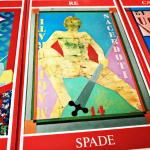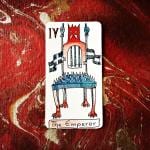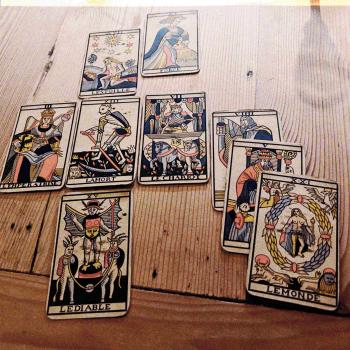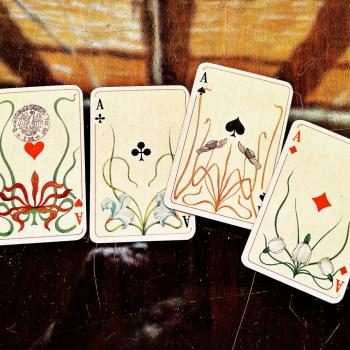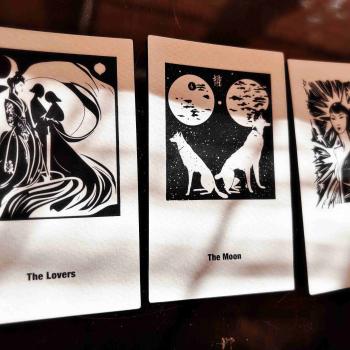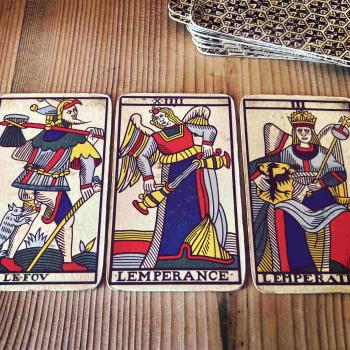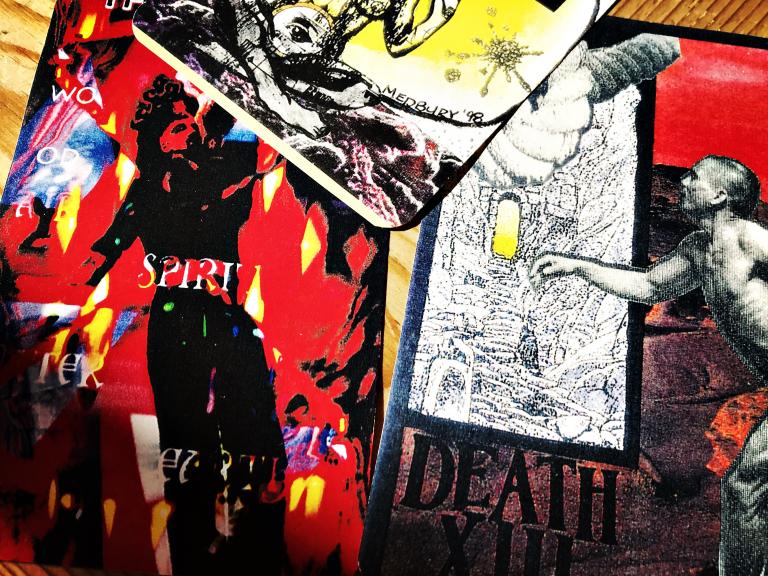
In literary and cultural studies there’s a concept called ‘belatedness’. Someone invents a term that goes mainstream, and before you know it, you’ll find the same in a different culture on a different continent than where it first originated, like, 20 years later. As with everything mainstream I tend to reject it out of hand, not necessarily because I’m a contrarian or a genius culture critic, but mainly because Oscar Wilde messed with my head the day the coin really dropped on the implication of his famed proclamation: ‘Everything popular is wrong’ – often also quoted here on The Cartomancer, and quite recently.
Nothing proves this sentence more correct than belatedness. The Tarot for self-help that originates in the 60s America, blooming 20 years later in Denmark or Romania, demonstrates just what a plague the whole concept of self-help really is. Asking the Tarot to help you with knowing what you want is almost as lame as the thousand YouTube videos on the internet, all carrying the title, ‘How to know what you want’, or to be more precise actually, ‘How to know what you really want?’ Then the deluge of equally lame promises. There’s no end to the 12-step, 4-step, 10-step, 20-step programs, all promising the paradise. It’s a classic used in literary studies. After the fall, there’s nothing more exciting that the reconstruction of the Garden of Eden. That’s the basic template everyone is working out of, from high culture to low culture and all the stuff in between, including the occult, marketing, or anime.
Now, and speaking of classics, I grew up with books not podcasts, and I remember quite clearly that if I ever had an existential crisis, all I needed to do is read a classic, a novel by Dostoyevsky or Tolstoy. I’d get just the picture. And more. The ‘more’ was the result of competence. Some novelists are simply very competent at using the hell/heaven template so that the perennially successful manipulation of binary opposites doesn’t sound so goddamn trite, repetitive, lame, resting on hot air hyperboles, or clichés activating your fears and desires as if you didn’t already know you have both. ‘You’re in denial that you have taboo desires,’ the self-help propaganda heralds, leaving us all in awe: ‘Oh, wow, that’s so deep. I never realized this’. In this line I’m using the other literary trope called ‘irony.’ While the hyperbole is welcome in the discourse that will teach you how to know what you really want, irony is not.
I’m thinking of all this today, as I’m reading an art tarot, a mail art collaboration under the name of the Capolan Group Tarot Project. This Tarot is based on collages made by various artists, and I’m amazed at how cohesive it is. Reading these cards by following the rhyming patterns is a real pleasure, and it trumps the plague techniques that rest on reading the cards individually – because they’re so loaded esoterically – with view to shooting for the curse of the relatable. The last thing I want from my tarot is to make me exclaim: ‘Me too, I’m so like this too. I’ve been there too. I’m so validated. This Tarot understands me deeply and compassionately…’
What do I really want?
Let’s ask the cards, ‘what do I really want?,’ and see what they can say in such a way that I won’t feel that I’m drowning in the sea of good intentions, helping myself out of the feeling of being stuck, powerless, put upon, you know, that template called ‘from rags to riches’, the story of the self-empowered victim, because it feels, oh so good. I have no appreciation for feelings, as they’re all fictions conjured by myself into words, with words being nothing other than symbolic glyphs.
I’m not interested in contrasts and binary opposites being raised at the power of the unified ‘alchemized soul.’ I’m more interested in how I get beyond language, beyond the cauldron that boils my fictions, however enchanting they all are. I’m not interested in solve et coagula, another fancy concept for ‘dissolve and coagulate.’ I’m interested in what I see is the case, whether it has any relation to my fears and desires or not. The notion that you can dissolve your fears or coagulate your desires is fiction.
The Priestess, the Magician, and Death made an appearance.
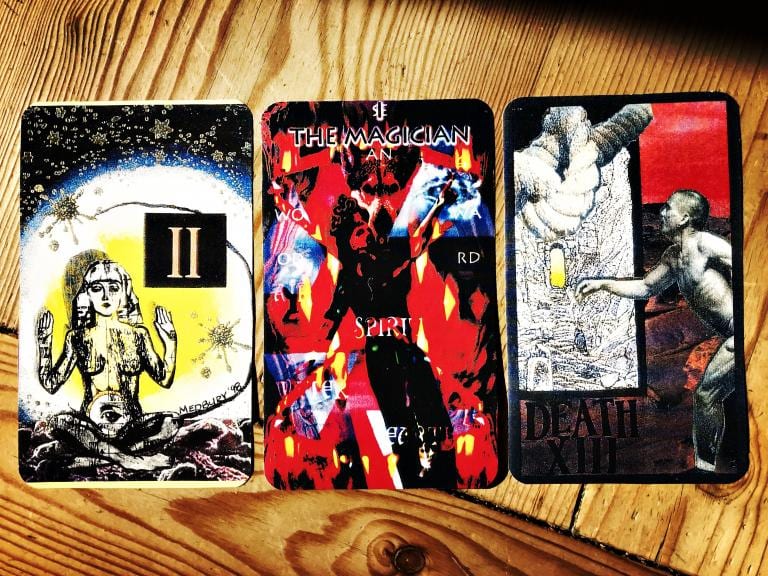
Her theme is yellow. His is red. He’s not immune. Her shards of yellow got him. He falls over. Death.
If death must be in the picture, I like it when it’s strong.
Her yellow, a portal. His red, a sky.
Who dares to go through?
There’s no alchemy here. She is the portal, and he is the sky. That’s their death.
What do I really want? I haven’t a clue, and I prefer to keep it that way. But I may know what I most definitely don’t want. I don’t what for that third person here, represented on this Death card, to go through the yellow portal in order to find himself, his passion, or the dead magician, now a sky, well-integrated à la Jungian studies in platitudes galore.
I challenge you to ask your cards:’ What do I really want,’ and give yourself an answer that’s not part of a something-something step program. What will you come up with? And don’t worry. For this question, there’s no prerequisite. There’s no request that prior to this question you must have undergone ‘shadow work’, digging deeply into your unconscious.
Ask yourself: ‘What do I really want?, and go beyond language, any language, yours, your mother’s, your guru’s, your goddess’, mine. That’s the challenge, to put an end to stories, as there’s no story to tell. Not one where death is a strong one, and you’re spared the waste of your time.
♠
Stay in the loop for cartomantic courses.


